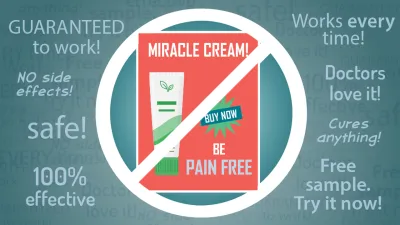Too much of a good thing: the health risks of human growth hormone
Published
Related content
-
Performance and image enhancing drugs
Information for consumers on the use of performance and image enhancing drugs -
How we stop advertisers from taking advantage of vulnerable consumers
Learn how we manage complaints about therapeutic goods advertising. -
If it walks like a therapeutic good, talks like a therapeutic good...
Some retailers try to use disclaimers like 'for research purposes only' to sell an illegal product, but these disclaimers don't change the law.



